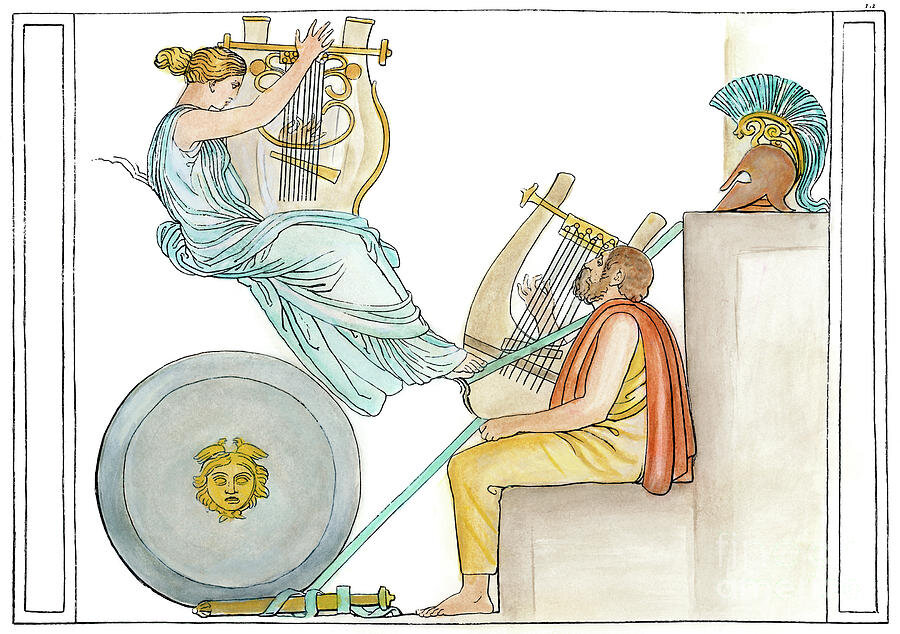This type of extended speech, delivered by a single character, reveals their thoughts aloud—often while alone on stage.
What is a monologue?
This underlying message or central idea is what a story conveys about life, society, or human nature—often revealed through plot and character.
What is theme
In the sentence, “She asked only pertinent questions during the interview, focusing on what really mattered,” this word means relevant or important to the topic.
What is pertinent
When a reader uses clues from the text combined with their own knowledge to draw a conclusion that isn’t directly stated, they are making this kind of logical guess.
What is an inference
In The Lion King, Mufasa tells Simba that everything the light touches is their kingdom—hinting at Simba’s future role as king. This is an example of this literary device that hints at what’s to come.

What is foreshadowing
The following examples are all different types of THIS literary term.
- When a character steps outside into a hurricane and says, “What lovely weather we’re having,” it’s an example of this.
- In Toy Story, Buzz Lightyear believes he’s a real space ranger, while the audience knows he’s just a toy.
- A fire station burning down is an example of this.
What is irony
DAILY DOUBLE!!
This type of theme deals with ideas like love, friendship, and courage that are understood and shared by people across all cultures and time periods.
What is universal theme
Ethos, pathos, and logos are the three main types of these persuasive strategies used by writers and speakers to appeal to credibility, emotion, and logic.
What are rhetorical appeals
In the sentence “The dog chased the cat,” the subject performs the action, showing this type of voice—unlike “The cat was chased by the dog,” which uses its opposite.
_______ voice
What is active voice
This is the method an author uses to reveal a character’s personality, traits, and motivations—either directly or through their actions, thoughts, and dialogue.
What is characterization
DAILY DOUBLE!!
After narrowly escaping a tornado, someone says, “We had a bit of wind today.” This is an example of this literary device that deliberately downplays the situation for effect.
What is understatement
This common mistake happens when two or more independent clauses are joined without proper punctuation or a conjunction, making the sentence confusing or incorrect.
_________ sentence
What is run-on sentence
In the sentence, "The hero's hubris led him to ignore the warnings, ultimately causing his downfall," this word refers to excessive pride or self-confidence.
What is hubris
DAILY DOUBLE!
In this type of sentence construction, the subject receives the action—like in “The homework was completed by the student,” instead of “The student completed the homework.”
_________ voice
What is passive voice
In Frozen, the snowy kingdom of Arendelle isn’t just beautiful—it helps create mood and supports the plot. This term refers to the time and place where a story happens.

What is setting
When The Odyssey opens with Odysseus already stranded on Calypso’s island, it’s using this narrative technique that begins a story in the middle of the action.

What is in medias res
Claiming “Everyone is doing it, so it must be right” is an example of this flawed reasoning, which weakens arguments by relying on incorrect logic or deceptive tactics.
What is fallacy
In the sentence, "The grandeur of the ancient palace left the tourists speechless," this word refers to the palace’s impressive beauty and majestic quality.
What is grandeur
This storytelling device interrupts the present action to show events that happened earlier, helping explain a character’s background or motivations.
Whether it's man vs. man, man vs. nature, or man vs. self, this literary element drives the plot by introducing a struggle between opposing forces.
What is conflict
This classical tradition, found at the beginning of epics like The Odyssey, involves the poet calling upon a divine spirit for inspiration to tell the story.
Invocation of the _________

What is Invocation of the Muse
This skill involves restating someone else’s ideas in your own words while keeping the original meaning intact, often used to avoid plagiarism.
What is paraphrasing
The difference between "I cannot go out" and "Out I cannot go" highlights this term, which refers to the arrangement of words and phrases to create well-formed sentences.
What is syntax
This type of question is asked to make a point or create effect rather than to get an actual answer—like when someone says, “Who doesn’t want to be happy?”
What is rhetorical question
Unlike a word’s dictionary definition, this refers to the emotional or cultural associations a word carries—like how “home” suggests warmth and comfort beyond just a building.
What is connotation